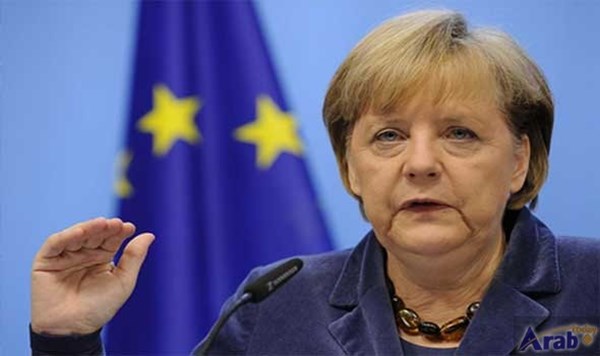Merkel’s party calls for action against Nord Stream 2 pipeline
Angela Merkel’s intention to step down from the position of leader of Germany’s Christian Democratic Union (CDU) party, and later from the position of federal chancellor, threatens to cause trouble for Russia.
Merkel’s most likely successor as head of the ruling CDU, Annegret Kramp-Karrenbauer, has criticized Russia for exacerbating the conflict with Ukraine, and has identified the Nord Stream 2 project as a possible target of response measures.
Refusing to support the project at all would be “too radical”, but Berlin may reduce the planned amount of gas transit through the pipeline, Kramp-Karrenbauer told ARD TV channel in an interview.
Germany must react to the growing political fears surrounding Nord Stream 2 – Gazprom’s third attempt to build a pipe that bypasses Ukraine – in light of Russia’s recent capture of three Ukrainian boats and their crews close to Crimea, stressed Kramp-Karrenbauer, who is leading in the battle for CDU leadership ahead of final voting at the end of the week.
According to her, the time has come to take a stricter stance with respect to Russia’s actions, including its annexation of Crimea and support of the rebels in eastern Ukraine.
On Friday, Kramp-Karrenbauer proposed another package of radical measures in response to Moscow’s refusal to release the detained Ukrainian sailors.
“If it is confirmed that the aggression originated with Russia, I think that a clear response needs to be given,” she said. “Such a response, for example, could be to ban Russian ships arriving from the Black or Azov seas from entering European or American ports until the situation with Ukraine is resolved”.
Europe and Germany in particular will “take on great responsibility” in matters of security and foreign policy, because they “have consequences domestically,” she emphasized.
“This means, for example, that we must spend more money on defense at home and abroad,” Kramp-Karrenbauer observed.
The EU is considering the possibility of imposing sanctions on Russia for the Kerch incident. Austrian Foreign Minister Karin Kneissl said on November 27: the decision will be made after an “analysis of the facts”.
There is no unity on the matter, and there is a good chance that no sanction package will follow, sources in Brussels told Reuters.
